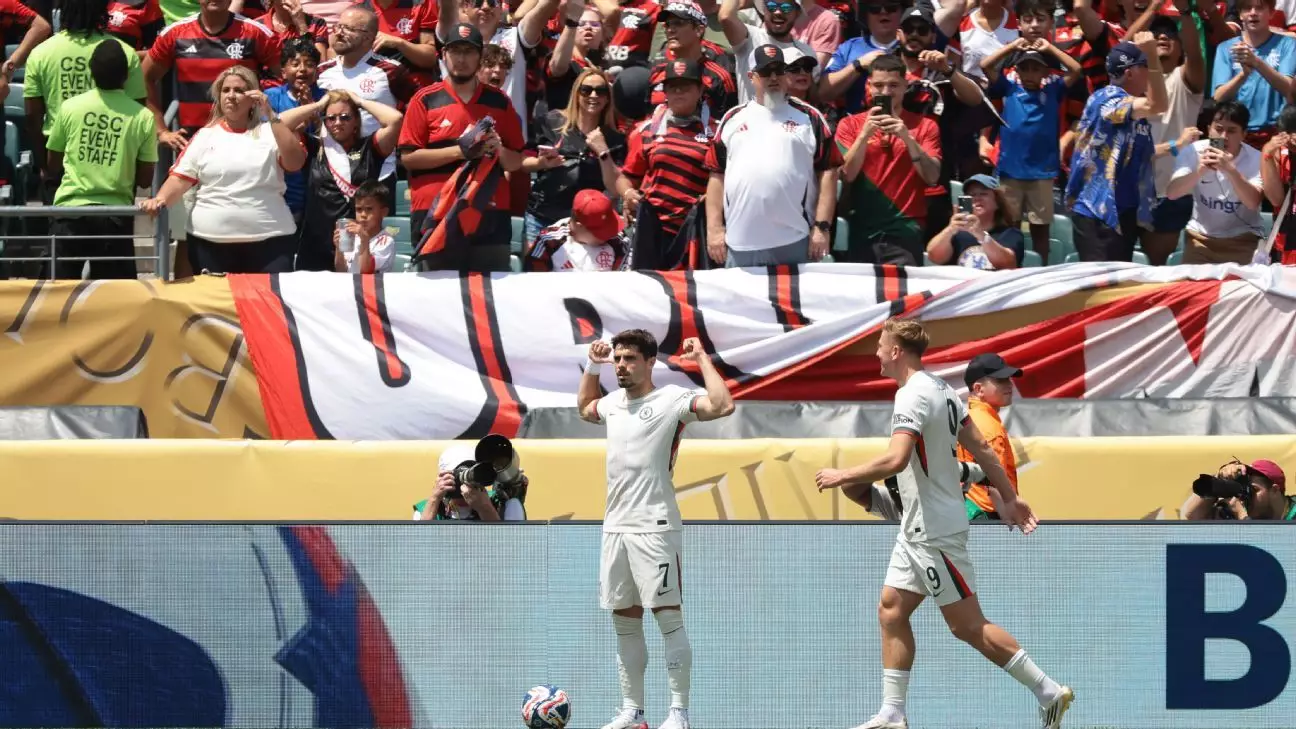The Club World Cup showcased a captivating showdown between Europe’s elite and South America’s finest, illustrating a stark contrast in desire and determination. Pedro Neto’s remarks after Chelsea’s surprising defeat to Flamengo encapsulated a common sentiment among players: the intensity of competition. Flamengo’s ambition manifested palpably on the field as they maneuvered their way to a 3-1 victory, evidencing that the fervor for glory can sometimes eclipse tactical sophistication. Neto’s candid acknowledgment of Flamengo’s superior desire is telling; it highlights an underlying truth in sports—raw passion can often be the deciding factor in high-stakes matches.
In the opening half, Chelsea controlled possession. However, the game took a turn when Flamengo’s fiery spirit ignited their campaign. Bruno Henrique’s equalizer served as a catalyst, revitalizing Flamengo and setting the stage for their ascent. Chelsea, although decorated with talent, appeared sluggish, particularly in the second half where a series of mishaps led to Nicolas Jackson’s dismissal. It raises a compelling question: how can a team rich in international talent fail to summon the requisite zest when it matters most?
The Dichotomy of the Two Leagues
Marc Cucurella’s reflections provided further insight into the contrasting dynamics of the Premier League and South American soccer. While the Premier League is often celebrated as the pinnacle of footballing prowess, Cucurella articulated a crucial point: the “momentum” enjoyed by South American teams in this context is palpable.
European clubs, laden with fame and resources, sometimes overlook the ephemeral nature of momentum—an element vital in knockout-style tournaments. Flamengo’s victory underlines this reality. Their approach is rooted in grit and communal belief, contrasting with the sometimes sterile execution that can emerge in high-profile leagues. The Brazilian side embodied an exhilarating blend of skill and heart, reminding observers that football is not merely a tactical exercise, but a passionate endeavor that requires more than just technical prowess.
Mindset Over Mechanics
The Club World Cup serves as a platform where two philosophies clash: the rigorous, analytical approach of many European clubs versus the vibrant, instinct-driven style of their South American counterparts. Neto’s comment about his preference for participating over idolizing the sandy shores resonates more deeply than mere sentiment. It reflects an athlete’s innate desire to compete; not just for accolades, but for the sheer love of the game.
This mentality creates camaraderie among players, uniting them under a banner of ambition. In contrast, Chelsea’s momentary lapse of motivation—or perhaps a failure to adapt—highlights a critical gap that elite clubs sometimes overlook: the psychological aspect of performance. Developing an unwavering commitment to victory is paramount, something Flamengo clearly displayed in their triumph.
As the tournament progresses, the challenge for Chelsea will not solely be tactical adjustments but developing an understanding of the willpower required to succeed in such an environment. The goal shouldn’t simply be to field talented players but to instill a culture of relentless determination that can truly shine in moments of adversity. As the rounds unfold, it remains essential to recognize that in football, the heart often plays just as important a role as skill.

Leave a Reply